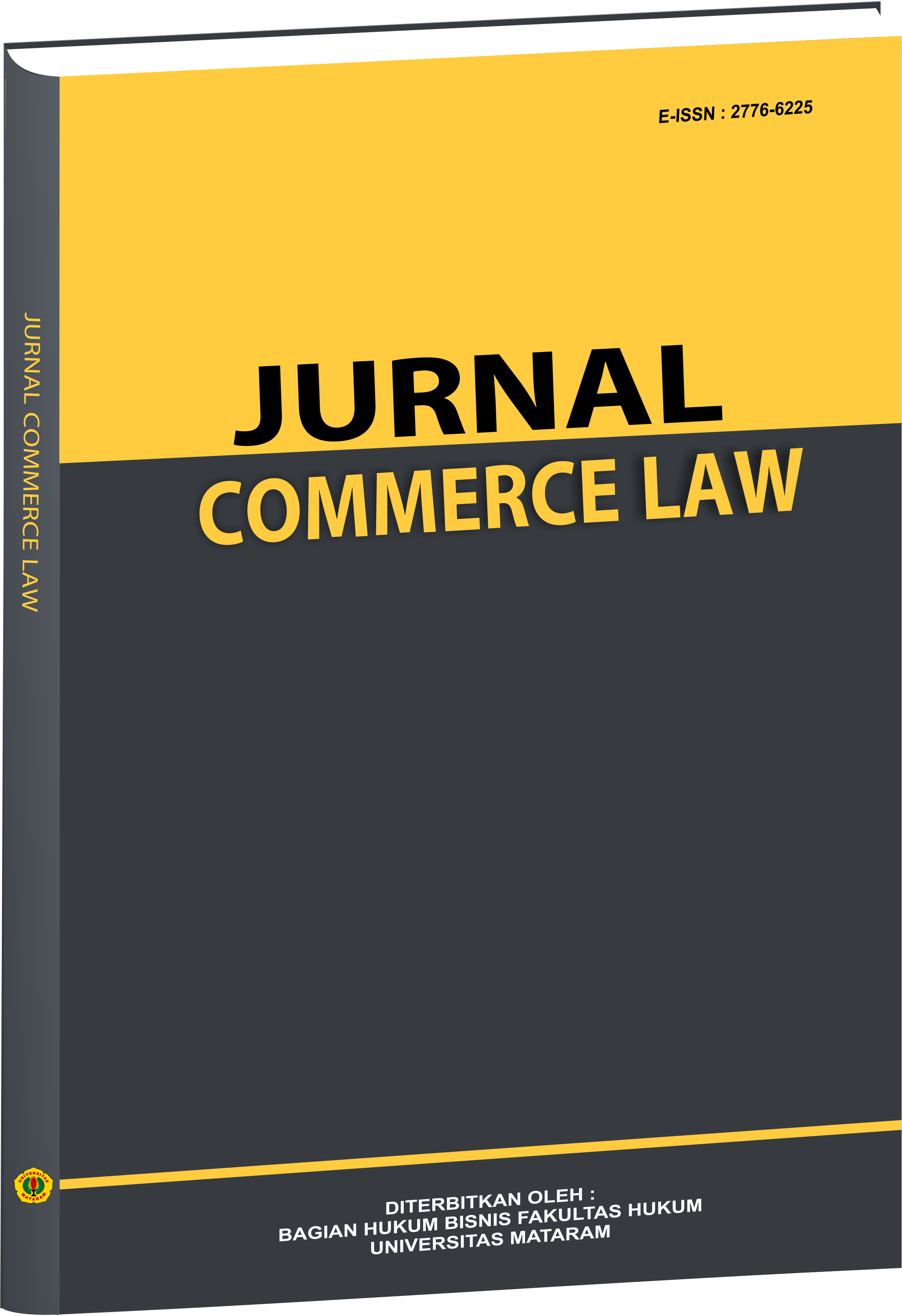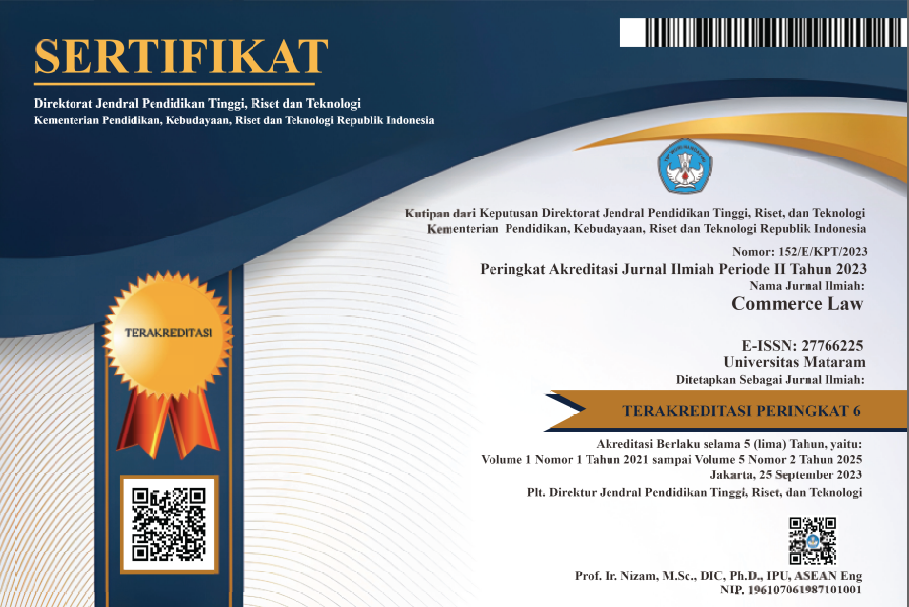Perlindungan Konsumen Dalam Transaksi E-Commerce Dengan Menggunakan Rekening Bersama
DOI:
https://doi.org/10.29303/commercelaw.v4i2.5554Keywords:
Transaksi; E-Commerce; Rekening BersamAbstract
Abstrak penelitian ini bertujuan untuk mengetahui bagaimana perlindungan konsumen jika penyedia jasa rekening bersama melakukan wanprestasi dan mengetahui pertanggung jawaban hukum terhadap konsumen jika terjadi kerugian. Jenis penelitian normatif. Hasil penelitian di dapat bahwa dalam sebuah perjanjian antara konsumen, pelaku usaha, dan penyedia jasa pasti memiliki aturan perjanjian yang meliputi syarat sah perjanjian yaitu kesepakatan, kecakapan membuat perikatan, pokok persoalan, dan sebab yang tidak terlarang. Perlindungan konsumen dalam terjadinya wanprestasi, diantaranya terdapat pada pasal 7 undang – undang nomor 8 tahun 1999 yaitu memberi kompensasi, ganti rugi dan/atau penggantian atas kerugian akibat penggunaan, pemakaian dan pemanfaatan barang dan/atau jasa yang diperdagangkan dan memberi kompensasi, ganti rugi dan/atau penggantian apabila barang dan/atau jasa yang diterima atau dimanfaatkan tidak sesuai dengan perjanjian. Selain itu tedapat juga ketentuan pembayaran ganti rugi diatur dalam pasal 1244 dan 1245 Kitab Undang-undang Hukum Perdata, menurut pasal 1244 apabila gagal membuktikan wanprestasi yang terjadi akibat hal yang tak terduga maka jasa rekening bersama Blackpanda dihukum harus membayar kerugian yang timbul karena transaksi tersebut. Sedangkan pada pasal 1245 menyebutkan apabila dapat dibuktikan terjadi keadaan yang menyebabkan jasa rekening bersama dalam keadaan terpaksa tidak dapat melakukan prestasi maka jasa rekening bersama terbebas atas pembayaran pergantian ganti rugi atas wanprestasi yang terjadi.Downloads
Published
How to Cite
Issue
Section
License
Copyright (c) 2024 Lalu Rizki Aditya Januar, L. M. Hayyanul Haq, Khairus Febryan Fitrahadi

This work is licensed under a Creative Commons Attribution-ShareAlike 4.0 International License.
The authors hold the copyright. Authors retain copyright and grant the journal right of first publication with the work simultaneously licensed under a creative commons. that allows others to share the work with an acknowledgement of the work's authorship and initial publication in this journal. How ever the author should affirming that the article is their original work should accompany the article via online submission form. Authors are permitted to share a Preprint of their article anywhere at any time.












